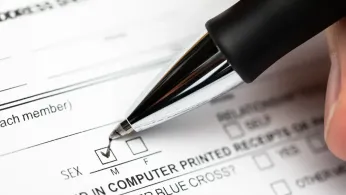
4 hours ago
College Professor Sues Federal Government to Release Census Data on LGBTQ+ Americans
READ TIME: 3 MIN.
A New York City college professor, Dr. Jonathan Freeman, has initiated legal action against the federal government, seeking the release of pivotal data gathered by the U.S. Census Bureau regarding sexual orientation and gender identity. Represented by the legal nonprofit Democracy Forward, Freeman’s suit, filed in the U.S. District Court for the Southern District of New York, names the Census Bureau and the Department of Commerce as defendants and marks a significant step in the ongoing struggle to ensure visibility and civil rights protections for LGBTQ+ Americans .
In 2024, the Census Bureau conducted a large-scale test survey, funded by Congress, that included questions on sexual orientation and gender identity. This pilot reached approximately half a million U.S. households, with the goal of assessing the scientific validity and appropriateness of these questions for potential inclusion in the American Community Survey (ACS)—a critical annual data source that informs policymaking across health care, housing, education, and employment sectors .
The ACS, which surveys about 3.5 million households annually, is considered the nation’s most comprehensive demographic tool. Advocates assert that integrating sexual orientation and gender identity questions would establish the only large-scale, annually updated benchmark for LGBTQ+ populations nationwide. Such data, they argue, is essential for policymakers to address the needs of LGBTQ+ communities and to enforce civil rights protections .
Despite promises of transparency, the Census Bureau has not released the results of its test survey, citing statutory provisions designed to protect personally identifiable information. Freeman, who has previously used similar data for academic research and advocacy, contends that the Bureau can lawfully release aggregate data that does not compromise individual privacy. After submitting Freedom of Information Act requests without success, Freeman turned to the courts, seeking a mandate for the release of the anonymized data .
In a public statement, Freeman emphasized the stakes: “The Census Bureau promised transparency around this testing yet has withheld the very information needed to evaluate the suitability of sexual orientation and gender identity questions in our nation’s most important annual demographic survey. As a researcher, I know how vital data is for ensuring civil rights are upheld and that public policies reflect the realities of people’s lives. Refusing to release the requested data on how these questions performed undermines the Census Bureau’s scientific integrity and prevents accountability when LGBTQ+ communities are left invisible” .
Skye Perryman, president and CEO of Democracy Forward, echoed these concerns: “In a democracy, government data collection must be transparent, especially when it directly informs how civil rights laws are enforced and how resources are distributed. The Census Bureau cannot withhold critical information that communities, researchers, and policymakers need to ensure fairness and equality. We are honored to represent Dr. Freeman in demanding accountability” .
Legal experts and advocacy groups note that the absence of reliable, large-scale demographic data on sexual orientation and gender identity hampers efforts to enforce anti-discrimination laws and to allocate resources equitably. Without this information, it is difficult to measure disparities in health, housing, employment, and other areas, leaving LGBTQ+ individuals at risk of systemic invisibility and marginalization .
The lawsuit underscores a broader movement among LGBTQ+ advocates for greater data transparency as a matter of civil rights. The inclusion of these questions in federal surveys is viewed as a foundational step toward recognizing the full diversity of American society and ensuring that government decisions are informed by accurate, representative information .
LGBTQ+ organizations and community leaders have voiced strong support for Freeman's legal challenge, emphasizing the vital role that robust, inclusive data plays in advancing equality. Many note that similar data collection efforts in other nations have led to improved services, better policy targeting, and enhanced protections for LGBTQ+ people.
The outcome of this lawsuit could set a precedent for how demographic data on marginalized communities is handled—and how government agencies are held accountable for commitments to transparency and inclusion. As the case moves forward in federal court, its progress will be closely watched by advocates, researchers, and policymakers nationwide.
For now, the question remains: Will the courts compel the federal government to release the data that could shape the future of LGBTQ+ rights in the United States? .






